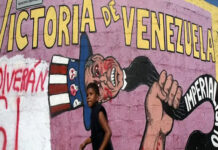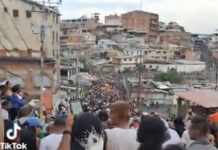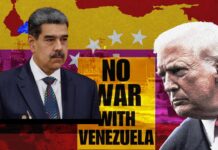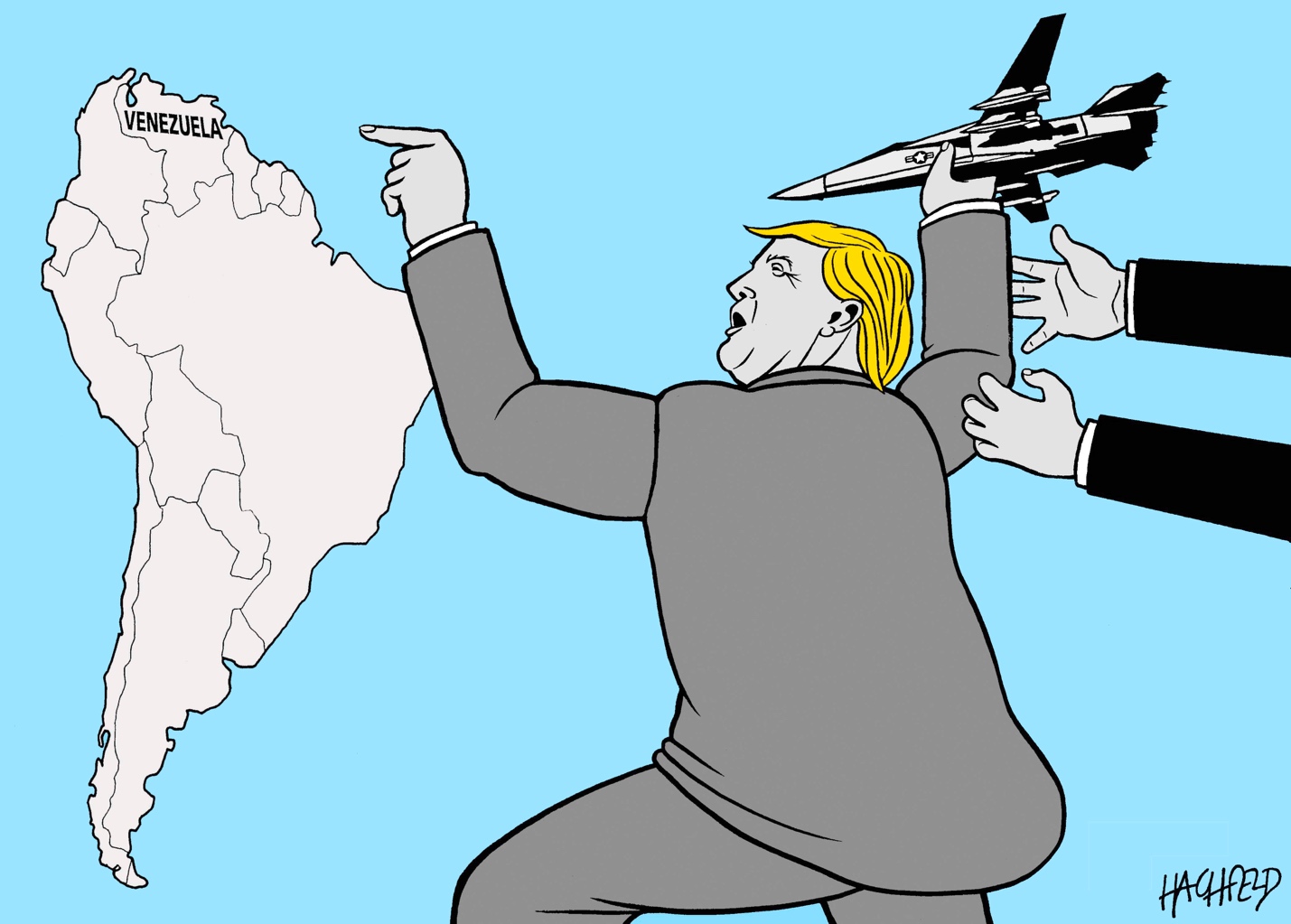
On October 16, 2025, Donald Trump’s second term ignited a reckless campaign against Venezuela, greenlighting covert CIA operations, deploying 4,000 Marines and F-35 jets to the Caribbean, and launching strikes on Venezuelan vessels that have killed more than 27 people—all framed as a fight against drugs and migration.
This is no noble mission: It is a recycled imperial plot to seize the world’s largest oil reserves, draped in fabricated threats. The U.S. narrative paints Nicolás Maduro as the mastermind of gangs like Tren de Aragua (TdA), but the CIA’s history of enabling criminal networks tells a different story.
Massive disparities in the global economy combined with selective policing contributed to these gangs’ spread, while U.S. banks launder billions in cartel cash, exposing the hypocrisy of Trump’s “security” crusade.
In 2019, Trump hesitated without a solid pretext or figurehead; now, with tailored narratives and a charismatic proxy, he is poised to strike, driven by oil lust and geopolitical games—not justice.
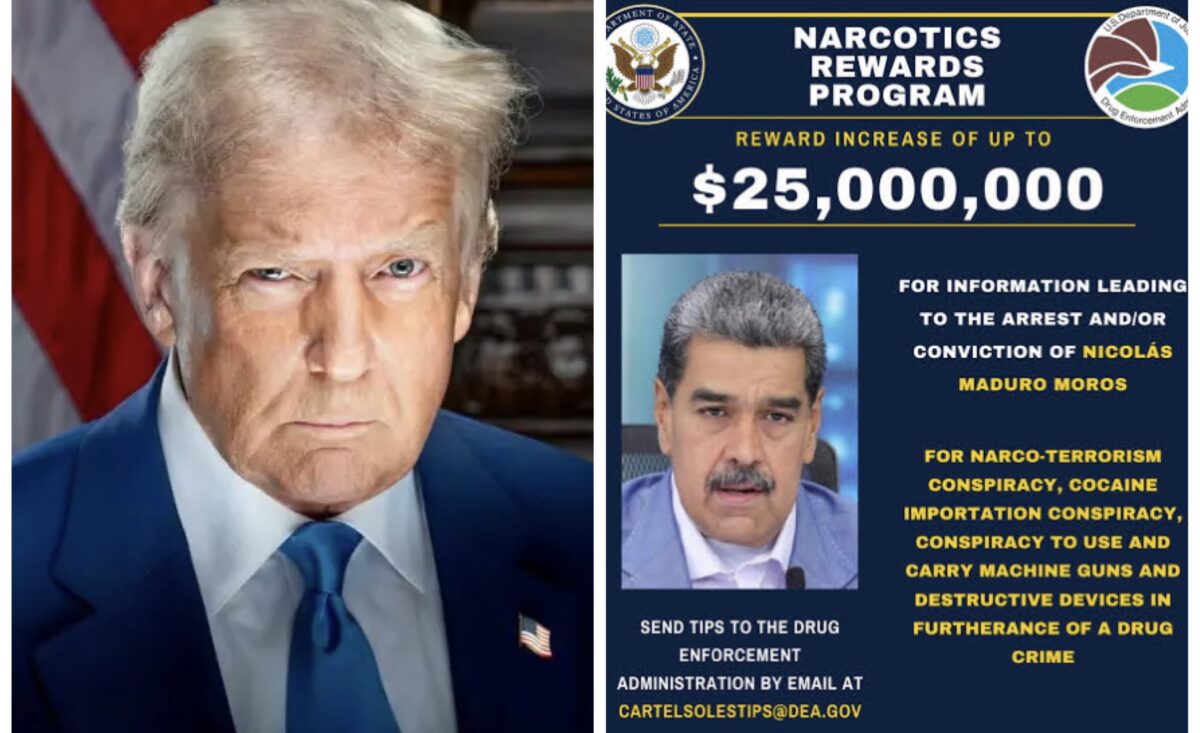
Why Trump Paused in 2019: No Pretext, No Puppet
In 2019, Trump toyed with invading Venezuela but backed off. His (now indicted) adviser John Bolton pushed hard for regime change, admitting to plotting coups globally, including in Venezuela.
Trump saw invasion as “cool,” viewing Venezuela’s 300 billion barrels of oil as practically American. So why the pause? He lacked a convincing excuse or a compelling opposition leader to justify the risks.
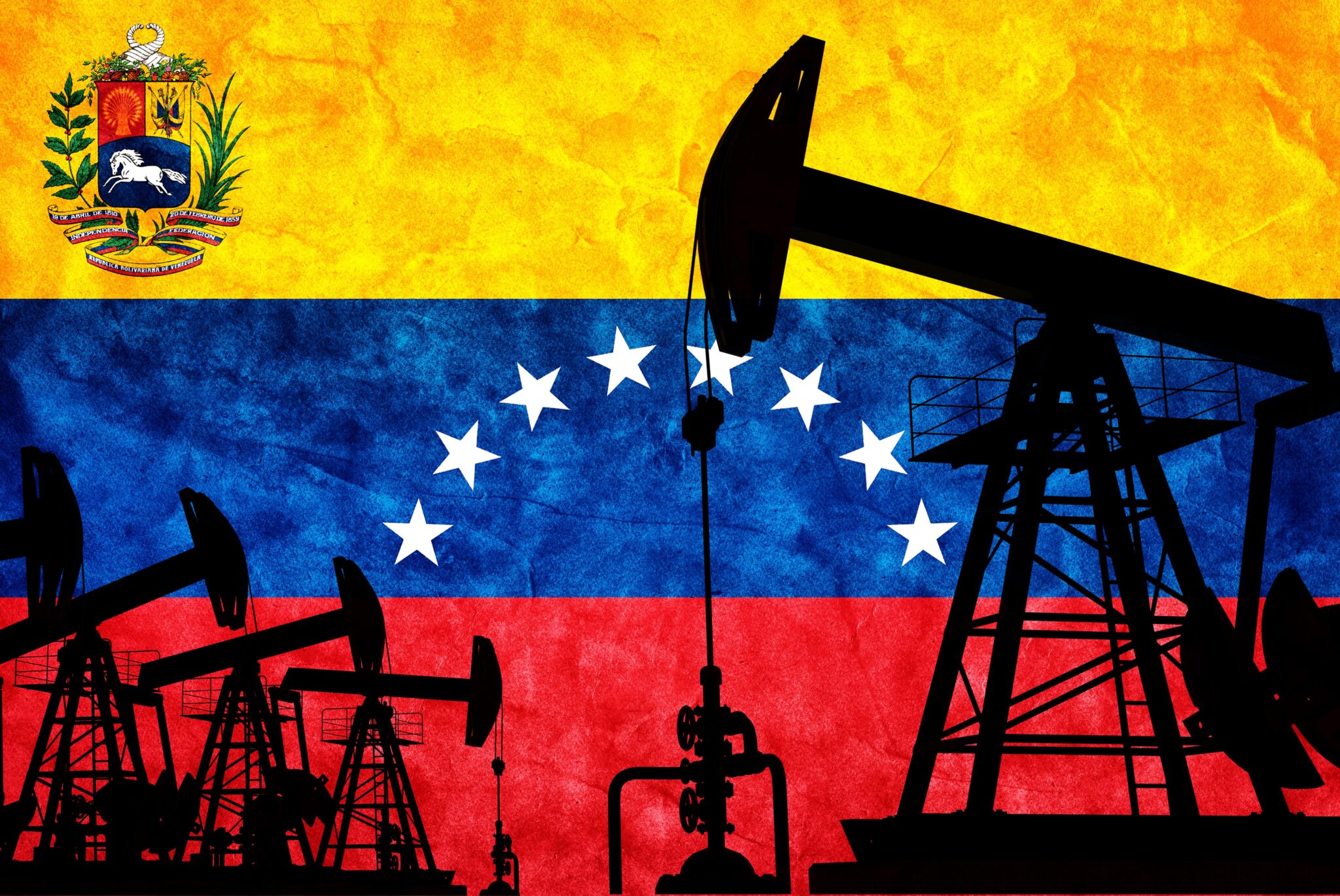
An invasion would have violated the UN Charter, barring force against sovereign states without Security Council approval, which Maduro’s allies Russia and China would veto.
Domestically, the War Powers Resolution required congressional consent for sustained conflict, absent an imminent threat Venezuela did not pose. Regional allies in the OAS and Lima Group opposed military action, fearing refugee surges and anti-American backlash. Public support was weak—only 30% of Americans backed intervention—and Trump, eyeing 2020 re-election, could not afford a quagmire like Iraq.
The opposition’s Juan Guaidó was a dealbreaker: an unknown “interim president” with no charisma or electoral legitimacy.
Trump called him “weak,” and Guaidó’s April 2019 uprising flopped, exposing him as a flimsy U.S. proxy.
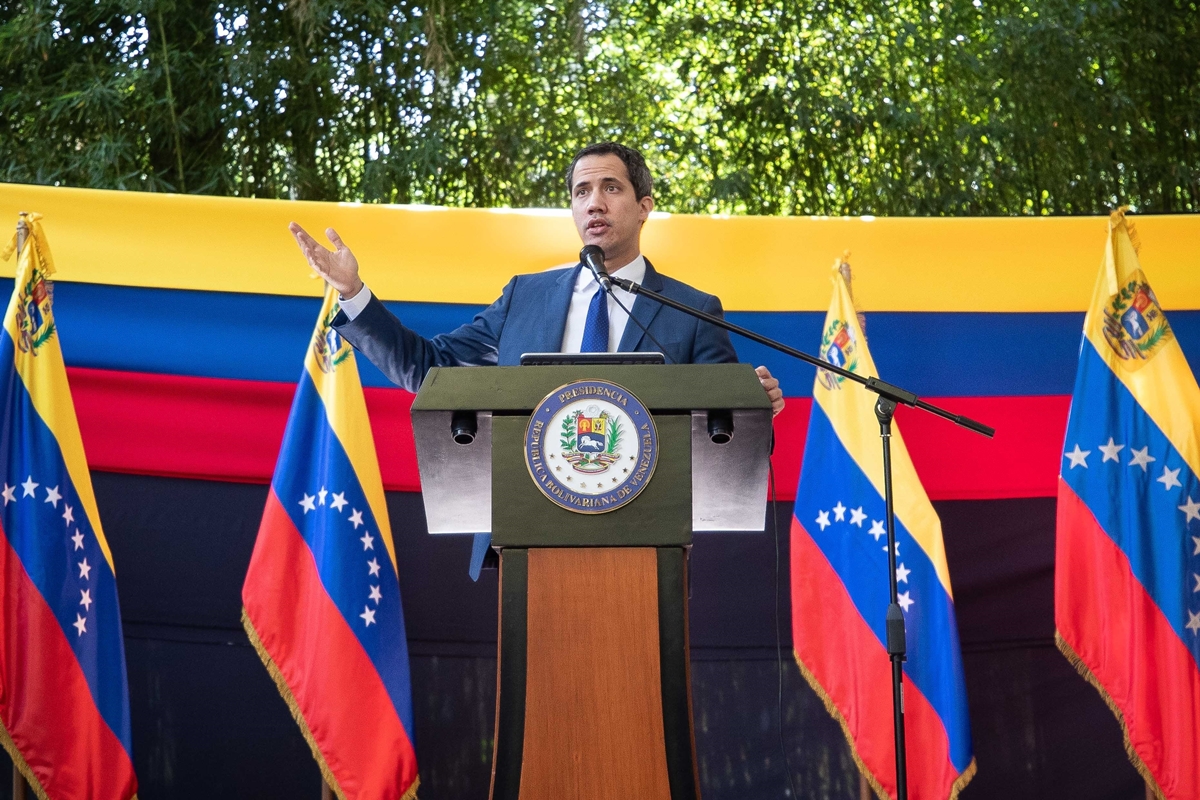
Without a strong pretext or a likable puppet, Trump previously relied on sanctions—economic warfare that slashed oil revenues by 99% from 2012 to 2020 and killed tens of thousands through shortages, as I noted in CovertAction Magazine, branding them “racketeer-level crimes” to destabilize Venezuela’s legitimate 2024 election.
Yet, these failed to topple Maduro, forcing Trump to wait for better optics. The hesitation revealed the fragility of U.S. strategy: Without a robust narrative to mask the aggression, intervention was politically toxic.
Sanctions became the fallback, a slow strangulation that deepened the humanitarian crisis, driving millions to flee and setting the stage for future pretexts. This era underscored how U.S. foreign policy often prioritizes resource control over human rights, using economic tools to soften targets for eventual military moves.
Trump’s first-term advisers, including military leaders, warned of logistical nightmares in Venezuela’s rugged terrain and Maduro’s loyal militias, numbering more than four million, which could turn any incursion into a protracted guerrilla war.
The lack of international coalition support further isolated the idea, as even anti-Maduro nations like Colombia balked at hosting U.S. bases for fear of regional destabilization. In essence, 2019 was a lesson in imperial overreach: Without a polished excuse and a charismatic front, the mask slips, revealing naked ambition for oil.
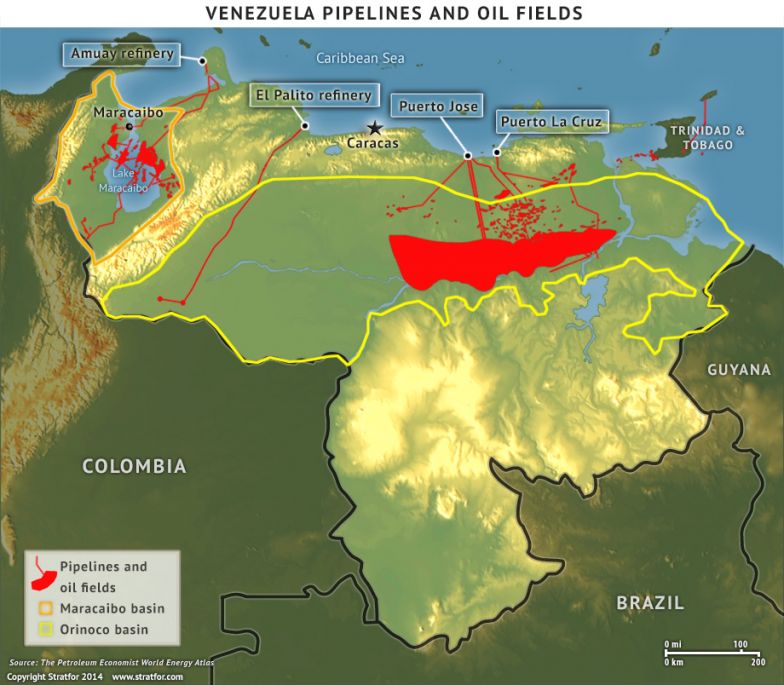
2025’s Fabricated Crisis: Migration and Gangs As Pretext
By 2025, Trump—unshackled from re-election considerations—wields a loyal cabinet and surging “America First” approval. He has authorized CIA surges across Central America and the Caribbean, openly weighing “land strikes” on Venezuelan soil. The excuse? Venezuelan migration and TdA gangs as a “national security invasion.”
More than eight million Venezuelans have left since 2014, many entering the U.S., with TdA blamed for crime spikes. Trump labels Maduro the gang’s overlord, slapping a terrorist tag and a $50 million bounty.
This is pure fiction. U.S. intelligence memoranda admit there is “no evidence” Maduro controls TdA; his regime sees it as a rival and has targeted it aggressively.
In September 2023, Maduro deployed 11,000 troops to raid Tocorón Prison—TdA’s stronghold—dismantling a gang-run fortress with a zoo and disco.
Venezuelan forces killed members in follow-ups, proving Maduro could not eliminate them fast enough, not that he commands them.
TdA’s U.S. crimes—mostly theft and burglary—are opportunistic, not state-driven, per experts.
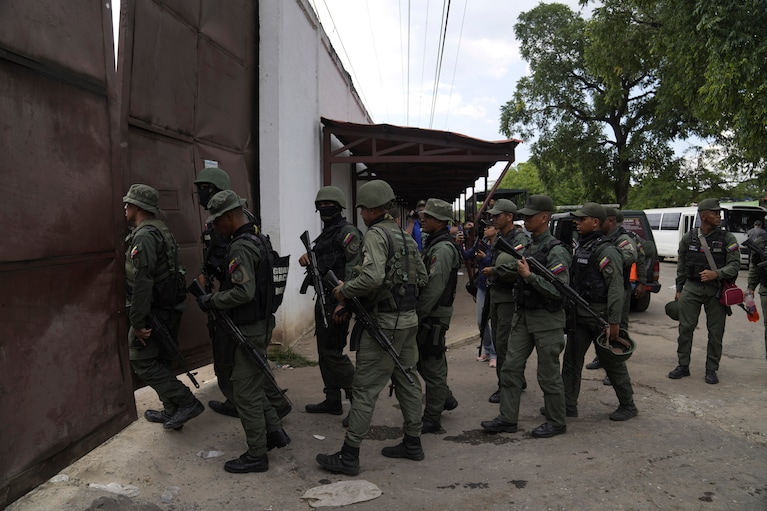
The Biden administration designated Tren de Aragua as a transnational criminal organization in 2024 though was accused by the political right of releasing suspected TdA members from custody and was attacked for allegedly allowing for “open borders, which Trump exploited to advance his political fortunes.
The right-wing narrative prevalent in the U.S. that is also ebraced by the Democratic Party ignores how sanctions exacerbated poverty in Venezuela, and pushed migration waves that created a self-fulfilling crisis.
The TdA hype amplifies fears, but experts note the gang’s fragmentation after Maduro’s raids, with U.S. incidents paling beside domestic threats like MS-13.
Feeding off biased media depictions, Trump’s rhetoric inflames nativism, tying Venezuelan refugees to “invasions,” but data show that most migrants are fleeing economic ruin wrought by U.S. pressure, not state-directed sabotage.
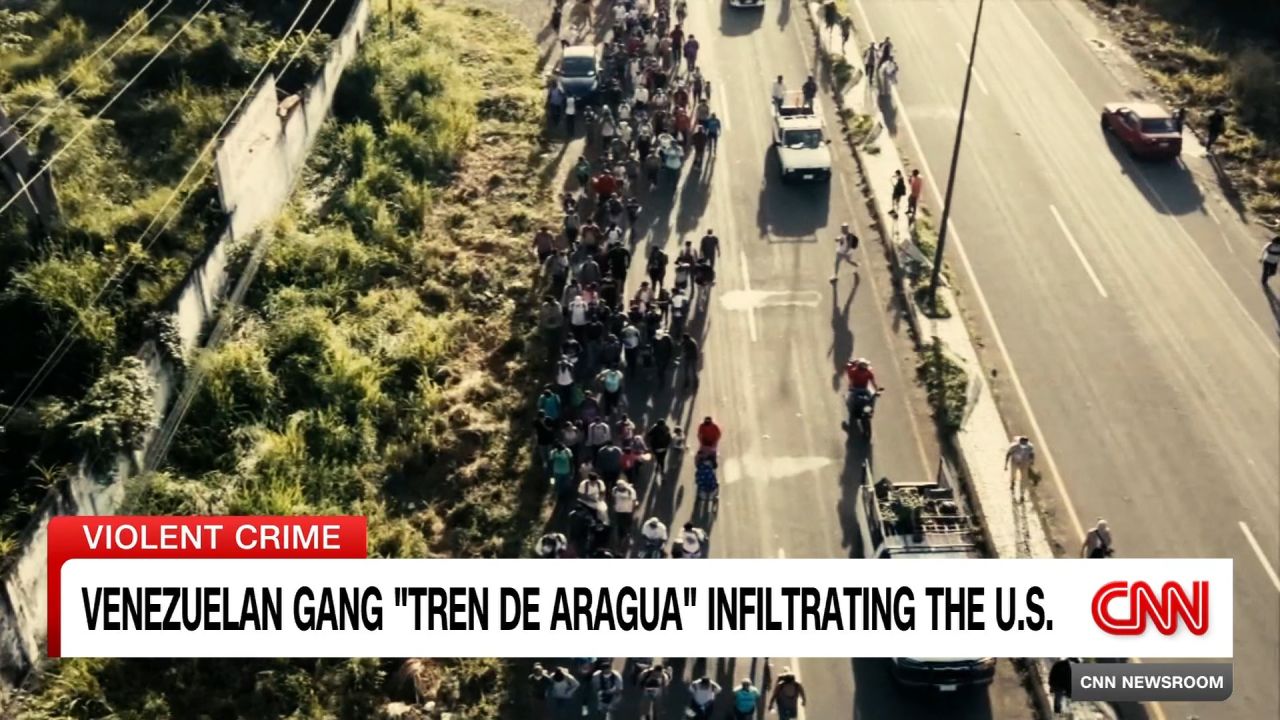
The false national security pretext allows Trump to sidestep legal hurdles like the War Powers Resolution for limited strikes, building toward regime change without full congressional debate.
The escalation’s timing, post-Biden’s term, underscores how political blame-shifting fuels foreign aggression, turning humanitarian tragedies into electoral gold.
CIA’s Shadow: Gangs As Tools, Not Maduro’s Puppets
The hypocrisy is glaring: TdA is not Maduro’s weapon—evidence points to CIA entanglements.
The agency’s history is riddled with enabling criminal networks for geopolitical gains, from Contra cocaine operations in the 1980s—about which Senate probes confirmed tolerance of smuggling to fund anti-communists—to shielding Mexican cartels for intel.
In Venezuela, a 1990 CIA sting flooded U.S. streets with cocaine via local generals. Today, speculation links TdA to CIA cutouts, echoing Nicaragua’s Contras as pretexts for intervention. Trump’s CIA authorization fuels questions: Is TdA being manipulated to justify escalation?
This is not speculation; it is precedent. The CIA backed Afghan mujahideen heroin lords and ran “guns-for-drugs” with Panama’s Noriega. In Mexico, CIA ops spare allies like Sinaloa for intel.
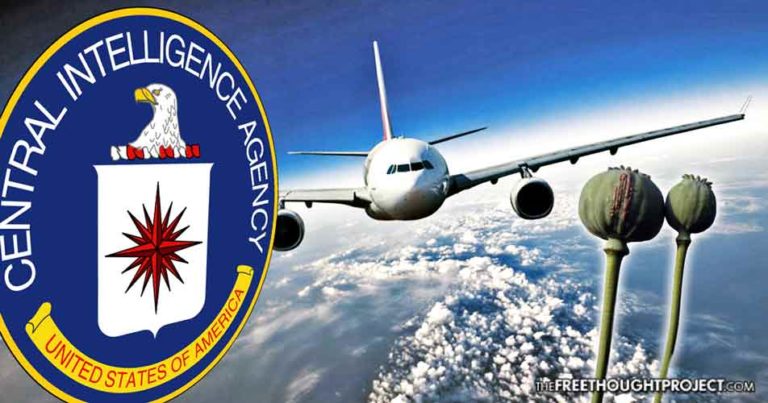
Venezuela routes just 6% of U.S.-bound cocaine, mostly from Colombia—yet Maduro’s scapegoated while the agency’s past is ignored. If gangs are the issue, why dodge the CIA’s role in fostering them?
The agency’s playbook includes turning prisons like Tocorón into breeding grounds for chaos, then blaming local leaders. Maduro’s raids disrupted this, but U.S. media amplify TdA as a “super gang” to build war fever.
This mirrors how the CIA backed Salvadoran death squads in the 1980s, labeling them “freedom fighters” while ignoring atrocities.
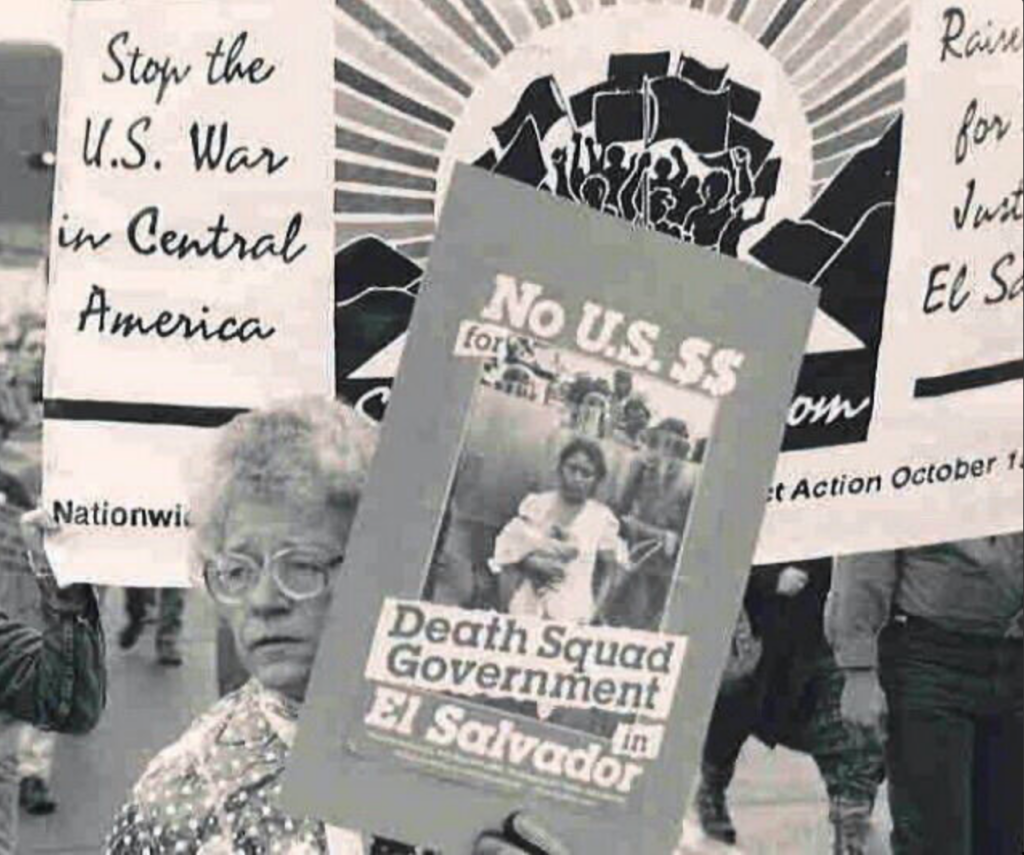
In Venezuela, the escalation risks repeating history: using gangs as casus belli for intervention, ignoring how U.S. policies—sanctions and border laxity—created the vacuum.
Trump’s CIA greenlight raises alarms of false flags, where manipulated threats justify strikes, echoing WMD lies in Iraq.
The Oil Prize and Machado’s Betrayal: Imperialism’s True Motive
The core driver is oil—300 billion barrels, more than in Saudi Arabia. Trump’s 2019 musings about seizure have hardened into 2025 rhetoric: Take it if Venezuela “collapses.” Opposition leader María Corina Machado, 2025 Nobel Prize recipient, pledges privatization, promising U.S. firms like Chevron “millions of barrels.”
Her ties to U.S. funding and calls for intervention make her the charismatic proxy Guaidó never was.

Geopolitically, Venezuela’s ties to China, Russia and Iran—oil deals and military aid—position it as a rival foothold, spurring Trump to act.
Maduro’s 2024 re-election, observed as fair by 910 international monitors with biometric safeguards and 54% machine audits, is dismissed as fraud to isolate him. This “dispute” provides cover for strikes aimed at triggering defections, not full occupation.
But Machado is not a hero; she is a traitor, selling out Venezuela’s sovereignty for U.S. applause and money. Her Nobel “peace” prize masks a neo-liberal agenda: Privatize PDVSA, handing the Orinoco Belt’s trillions to American giants like ExxonMobil.
In interviews with Trump Jr., she gushed, “U.S. companies are going to make a lot of money,” vowing to “privatize all our industry” and swap debt for investments—essentially mortgaging Venezuela’s future to Wall Street.
This reverses Hugo Chávez’s nationalization, which reclaimed oil from foreign exploiters who siphoned 80% of profits abroad. Machado’s plan would enrich Chevron while Venezuelans, battered by sanctions she endorses, would face austerity.
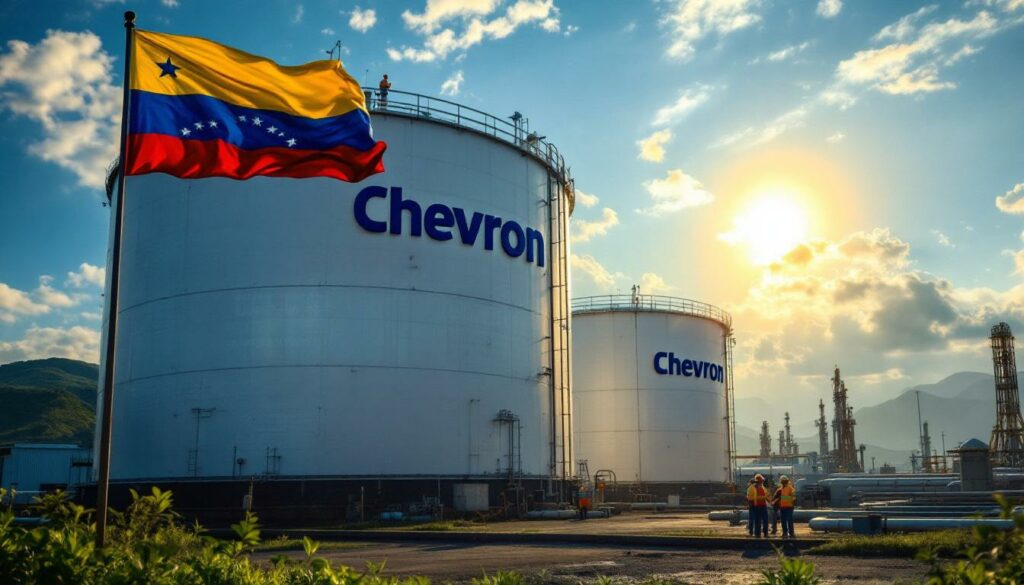
Her betrayal runs deep. Funded by the NED—a CIA front—she co-founded Súmate in 2002 to oust Chávez via recalls, pocketing millions in “democracy” grants. She has cozied up to Bush, Rubio and Trump, dedicating her Nobel to the U.S. president amid his Caribbean build-up.
X users blast her as a “coward hiding in her cave,” plotting to “neutralize” opponents in her “first 100 hours” with U.S. troops installing her as puppet. One post sneers: “Hands up, who’s surprised that U.S./Israel puppet Maria Corina Machado promised Venezuela’s oil to the U.S.?”
Another post labels her “extreme right-wing U.S. puppet, funded by the CIA for 2 decades, plotting regime change and privatizing Venezuela’s state-owned oil company to U.S. oil corporations.”
Machado’s Nobel reeks of orchestration—nominated by U.S. Republicans, it is less peace prize than coronation for a compliant stooge.
Historian Greg Grandin calls it the “opposite of peace,” citing her backing of sanctions that starved Venezuelans and her praise for Netanyahu’s Gaza tactics as a model for “bombing” Maduro. She has cheered Trump’s boat strikes and the Alien Enemies Act for deportations, ignoring how sanctions drove the refugee crisis.
In victory speeches, she thanked Trump, vowing “freedom” with his aid—code for U.S.-backed coup followed by oil sell-off.
This is not leadership; it is treason. Venezuela’s oil, the Bolivarian Revolution’s lifeblood, funded literacy and health care for millions. Machado would trade it for foreign profits, displacing communities and gutting social programs.
Her “popular capitalism” touts LGBTQ rights and cannabis legalization, but it is a smokescreen for deregulating labor and privatizing the Guri Dam.
As X critics rage, she is “ready to sell Venezuela to the highest bidder,” a far-right ideologue barred from the 2024 race for insurrection ties, now hiding while courting Trump’s Marines.
History will judge her not as “Iron Lady,” but as the velvet glove for U.S. imperialism, peddling her people’s birthright for a Nobel and power.
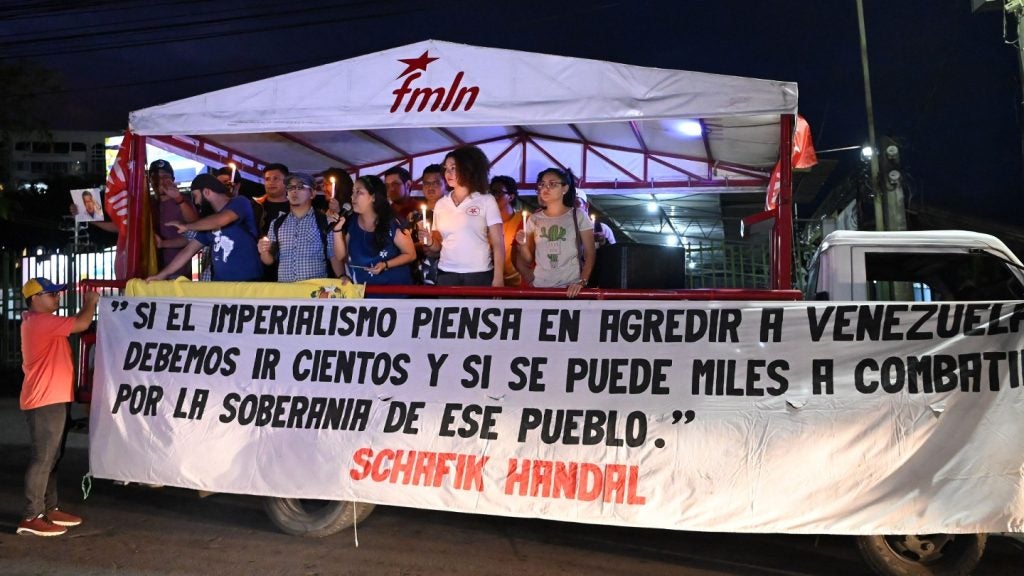
Banking’s Dirty Secret: Fueling the Real Cartels
The hypocrisy peaks with U.S. banks laundering billions in cartel cash while Trump vilifies Venezuela’s “narco-terror.”
TD Bank’s $3 billion 2024 fine for $470 million in fentanyl profits is one case—Wachovia washed $390 billion for Mexican cartels (fine: $160 million), HSBC $881 million for Sinaloa (fine: $1.9 billion).
Chinese networks funneled $312 billion through U.S. banks for cartels from 2020 to 2024. Fines are business expenses—no executives face jail—enabling the trade Trump decries.
This double standard is glaring: The U.S. profits from drugs at home while bombing abroad. Sanctions, not Maduro, drove migration—yet they are the pretext for aggression.
Risks loom: a quagmire in Venezuela’s jungles, regional war, more deaths.
Analysts warn of a strong chance of engagement by year’s end. Reject the war drums—lift sanctions, probe CIA-gang ties, respect sovereignty. This crisis is made in America; end the hypocrisy before it sparks another endless war.
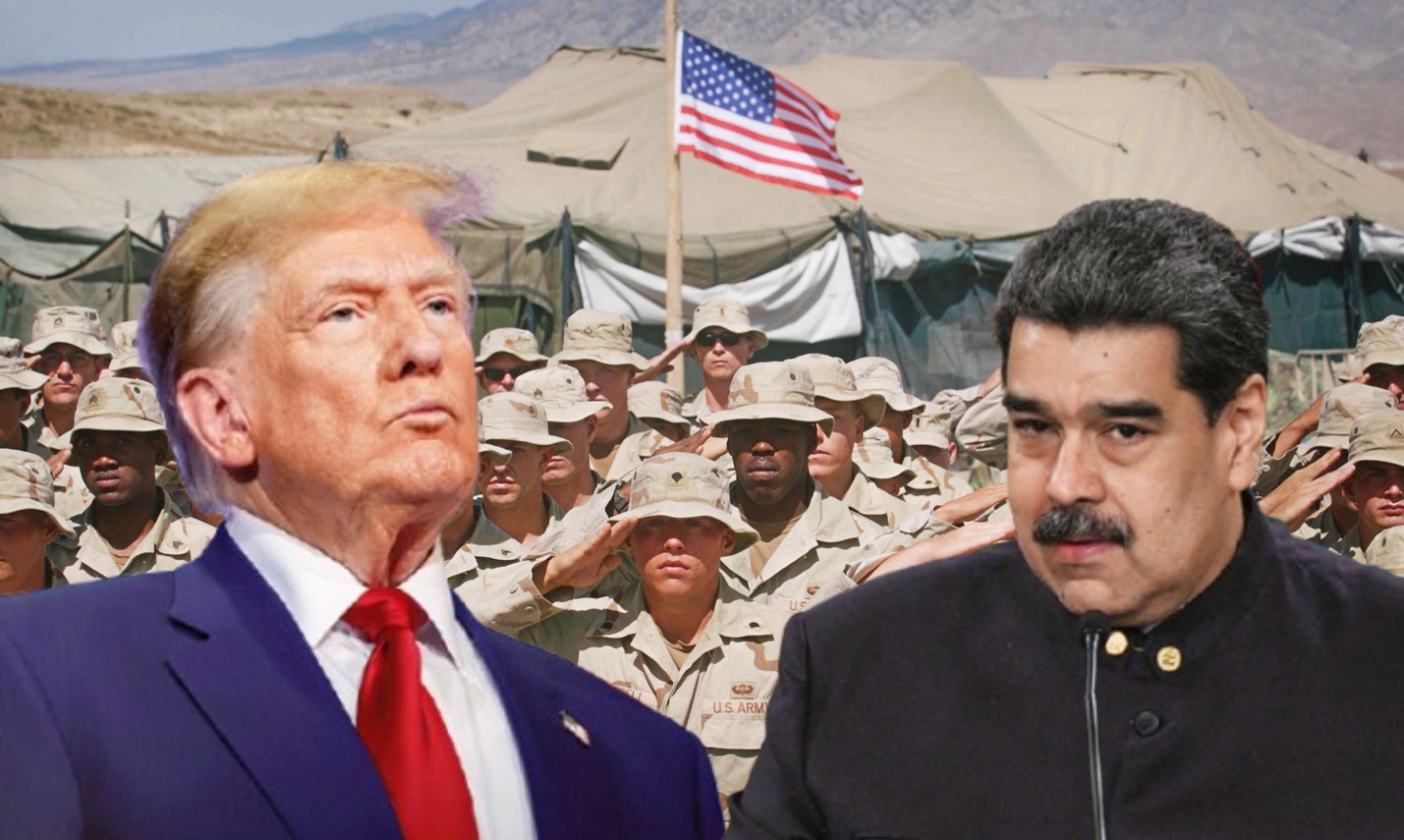
The escalation’s broader implications are chilling. Trump’s strategy—limited strikes to force defections—could ignite guerrilla resistance, drawing in Maduro’s 4.5 million militiamen and allies like Russia, which has supplied anti-air missiles and conducted joint exercises. China’s $60 billion debt stake means any U.S. move risks global economic ripples, spiking oil prices beyond $90 a barrel.
Domestically, Trump’s border-linked action masks dividing America, fueling anti-immigrant violence while ignoring root causes like sanctions’ blowback.
The cycle of blame on Democrats supposed soft policy toward immigration ignores how both parties perpetuate Latin American destabilization for profit.
Venezuela’s story is a cautionary tale: from Chávez’s oil-funded socialism to Maduro’s resilience amid siege, U.S. interference has only hardened resolve.
Machado’s traitor turn amplifies the danger, her Nobel a tool to legitimize plunder. Venezuelans, rallying in massive pro-Maduro demonstrations, reject her sell-out, seeing her as a colonial echo.
As one X post warns, “Machado is a traitor! Trump-backed… promises to give oil to U.S. corporations.”
The path forward? Diplomacy, not drones—lift sanctions, negotiate oil deals fairly, and end the gangster games.
Only then can Venezuela heal, and America reclaim moral ground lost to imperial greed.

CovertAction Magazine is made possible by subscriptions, orders and donations from readers like you.
Blow the Whistle on U.S. Imperialism
Click the whistle and donate
When you donate to CovertAction Magazine, you are supporting investigative journalism. Your contributions go directly to supporting the development, production, editing, and dissemination of the Magazine.
CovertAction Magazine does not receive corporate or government sponsorship. Yet, we hold a steadfast commitment to providing compensation for writers, editorial and technical support. Your support helps facilitate this compensation as well as increase the caliber of this work.
Please make a donation by clicking on the donate logo above and enter the amount and your credit or debit card information.
CovertAction Institute, Inc. (CAI) is a 501(c)(3) non-profit organization and your gift is tax-deductible for federal income purposes. CAI’s tax-exempt ID number is 87-2461683.
We sincerely thank you for your support.
Disclaimer: The contents of this article are the sole responsibility of the author(s). CovertAction Institute, Inc. (CAI), including its Board of Directors (BD), Editorial Board (EB), Advisory Board (AB), staff, volunteers and its projects (including CovertAction Magazine) are not responsible for any inaccurate or incorrect statement in this article. This article also does not necessarily represent the views the BD, the EB, the AB, staff, volunteers, or any members of its projects.
Differing viewpoints: CAM publishes articles with differing viewpoints in an effort to nurture vibrant debate and thoughtful critical analysis. Feel free to comment on the articles in the comment section and/or send your letters to the Editors, which we will publish in the Letters column.
Copyrighted Material: This web site may contain copyrighted material the use of which has not always been specifically authorized by the copyright owner. As a not-for-profit charitable organization incorporated in the State of New York, we are making such material available in an effort to advance the understanding of humanity’s problems and hopefully to help find solutions for those problems. We believe this constitutes a ‘fair use’ of any such copyrighted material as provided for in section 107 of the US Copyright Law. You can read more about ‘fair use’ and US Copyright Law at the Legal Information Institute of Cornell Law School.
Republishing: CovertAction Magazine (CAM) grants permission to cross-post CAM articles on not-for-profit community internet sites as long as the source is acknowledged together with a hyperlink to the original CovertAction Magazine article. Also, kindly let us know at info@CovertActionMagazine.com. For publication of CAM articles in print or other forms including commercial internet sites, contact: info@CovertActionMagazine.com.
By using this site, you agree to these terms above.
About the Author

Gloria Guillo, MPA is an investigative journalist, former Public Administrator and singer, songwriter.
She co-hosts Uncontrolled Opposition with Jeremy Kuzmarov.
Gloria can be reached at un.ops@icloud.com

